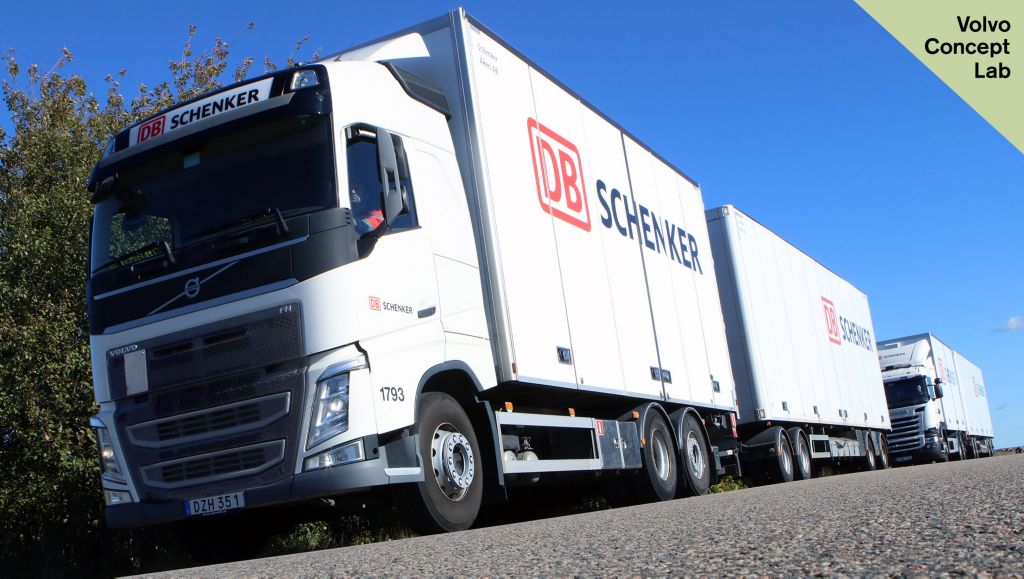Trucks talking to each-other in multi-brand platooning project


“Thanks to the possibility to test in real traffic we will be able to gather invaluable data to continue developing the technology”, says Jan-Ove Östensen, head of Vehicle Automation at Volvo Group.
Platooning will only have broad market reach if systems are harmonized across all brands with reliable and robust communication in all traffic situations. DB Schenker also a part of the project Sweden4Platooining utilizes trucks from different manufacturers in their daily operations which constitutes invaluable points of analysis in real-time situations.
“Except for the significantly important possibility to reduce carbon emissions, we want to intercept what platooning could benefit in regard to traffic flows and the utilization of transport infrastructure”, says Mats Grundius, CEO at DB Schenker Sweden.
When trucks can drive closely behind each one another, fuel economy is improved as a result of the reduction in drag. Drag accounts for 25% of a truck’s fuel consumption, and the closer the trucks drive to each other, the greater the fuel saving potential. Using wireless technology, the trucks can drive with only about a one-second gap between the vehicles in a platoon.
By communicating with each other, the trucks automatically match each other’s speed and braking. Essentially, this means that the reaction time for braking is reduced to zero. The wireless technology ITS-G5 (a.k.a. IEEE 802.11p) has been selected for communication between the trucks.
To operate trucks platoons on public roads several different aspects need to be synchronized and well-managed. The project will examine the overall requirements and interface for on-board truck systems and cloud communications to allow trucks and fleets to find each other in order to platoon. Scalable and reliable wireless communications between vehicles and safety aspects are other vital factors that will be studied.
Facts about the project
Authorities, academia and corporations in Sweden aim to stay in the forefront in developing autonomous vehicle technology. Volvo, DB Schenker, Scania, the Royal Institute of Technology, RISE, Research Institutes of Sweden and the Swedish Transport Administration are part of the project Sweden4Platooning.
The three-year research project until December 2019 has a funding of four million euro, of which Vinnova, Sweden’s innovation agency, together with Strategic Vehicle Research and Innovation (FFI) contribute 1,85 million euro.